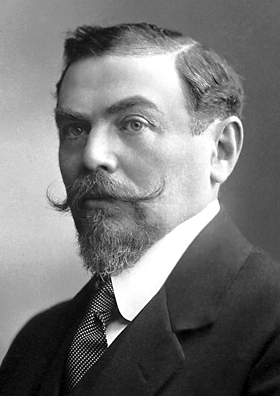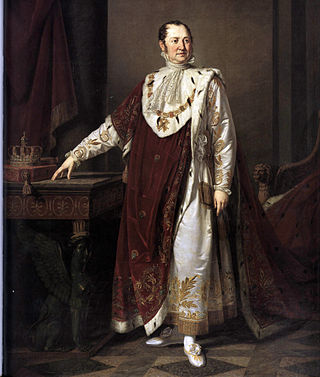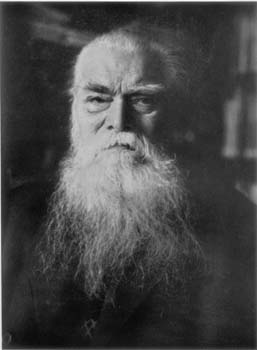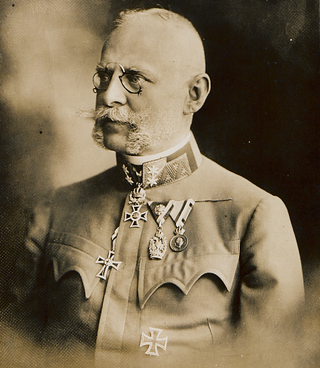Related Research Articles

Hugo Ball was a German author, poet, and essentially the founder of the Dada movement in European art in Zürich in 1916. Among other accomplishments, he was a pioneer in the development of sound poetry.

Alfred Hermann Fried was an Austrian Jewish pacifist, publicist, journalist, co-founder of the German peace movement, and winner of the Nobel Peace Prize in 1911. Fried was also a supporter of Esperanto. He is the author of an Esperanto textbook and an Esperanto-German and German-Esperanto dictionary, first published in 1903 and republished in 1905.

Werner Sombart was a German economist and sociologist, the head of the "Youngest Historical School" and one of the leading Continental European social scientists during the first quarter of the 20th century. The term late capitalism is accredited to him. The concept of creative destruction associated with capitalism is also of his coinage. His magnum opus was Der moderne Kapitalismus. It was published in 3 volumes from 1902 through 1927. In Kapitalismus he described four stages in the development of capitalism from its earliest iteration as it evolved out of feudalism, which he called proto-capitalism to early, high and, finally, late capitalism —Spätkapitalismus— in the post World War I period.

Georg Friedrich Knapp was a German economist who in 1905 published The State Theory of Money, which founded the chartalist school of monetary theory, which argues that money's value derives from its issuance by an institutional form of government rather than spontaneously through relations of exchange.

Maria Amalia of Austria was Holy Roman Empress, Queen of the Germans, Queen of Bohemia, Electress and Duchess of Bavaria etc. as the spouse of Emperor Charles VII. By birth, she was an archduchess of Austria, the daughter of Emperor Joseph I and Wilhelmine Amalia of Brunswick-Lüneburg. Maria Amalia had seven children, only four of whom lived through to adulthood, including Maximilian III, Elector of Bavaria.

Leopold Friedrich Günther von Goeckingk, also Göckingk was a German lyric poet, journalist, and Prussian official.

Moritz Kellerhoven was a German portrait painter and etcher.
Christian Ludolf Wienbarg was a German journalist and literary critic, one of the founders of the Young Germany movement during the Vormärz period.

Hermann Kauffmann also Herrmann Kauffmann was a German painter and lithographer, and one of the main representatives of the Hamburger Schule.
Richard Grelling was a German lawyer, writer and pacifist who wrote the international best selling book J'Accuse in World War I, publicly criticizing the actions of Germany for waging a war of aggression in Europe.
Kurt Heinrich Meyer or Kurt Otto Hans Meyer was a German chemist.

Karl Otto Heinrich Liebmann was a German mathematician and geometer.

Theodor von Cramer-Klett was a German entrepreneur and banker.

The Morgenblatt für gebildete Stände was a German cultural and literary journal that existed from 1807 to 1865. It appeared daily until 1851, when it was changed to a weekly journal. The Morgenblatt was published by Cotta in Tübingen and later in Stuttgart, and was the most important German literary and cultural journal of its time.
Hermann Keller was a German Protestant church musician and musicologist.

Hermann Ludwig Rudolph Duncker was a German Marxist politician, historian and social scientist. He was a lecturer for the workers' education movement, co-founder of the Communist Party of Germany, professor at the University of Rostock, and rector of East Germany's trade union academy.
Hermann Frischbier was a German schoolteacher as well as an author of works about East Prussian local history and culture.

Johann Günther Gensler was a German etcher, illustrator and painter; primarily of portraits. His known work consists of over 120 oil paintings and drawings.

Karl Konrad Ferdinand Maria von Amira was a German jurist who served as Professor of Constitutional Law at the Ludwig Maximilian University of Munich. He was a known expert on early Germanic law.

Alfred Krauss was an Austro-Hungarian officer, privy councilor, and the last-appointed General of the Infantry in the Austro-Hungarian Army. From 1920 Krauss was the leader of the National Association of German Officers in Vienna. In the last year of his life he was appointed a member of the Reichstag for the NSDAP and a brigade leader in the SA.
References
- ↑ Fernau, Hermann (1916). Because I Am a German. London: Constable and Co. pp. 6.